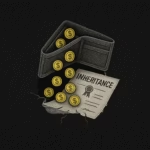A critical report from IPSOS UK, commissioned by Fair4All Finance, reveals a hidden and rapidly growing crisis: an estimated 1.9 million adults, equivalent to 4% of the population, have resorted to using unlicensed money lenders or outright loan sharks in the past year.
This staggering figure is not just a statistical anomaly; it is a clear signal that the legitimate financial safety net is failing millions, pushing households toward dangerous, unregulated, and often predatory borrowing as the cost of living crisis continues to worsen.
Crucially, the data shows that this desperation is most pronounced among the youngest generations, who are being systematically excluded from regulated financial products, creating a generational debt trap that could scar their long-term economic stability.
The Young and The Credit Barrier
The most alarming finding in the report is the concentration of illegal borrowing among younger adults. 11% of those aged 18-24 have used an unlicensed lender or loan shark in the past year. This rate is nearly three times higher than the general population average and is four times the rate seen in the 45-54 age bracket (1%).
This problem is not simply about high expenses; it’s about systemic exclusion. Over half (51%) of all individuals who used an unlicensed lender were declined by at least one regulated credit product in the past 12 months.
For young people, this rejection is often rooted in a “Catch-22” scenario:
- “Thin” Credit History: Younger adults are frequently declined because they lack a robust credit history. Traditional lenders struggle to assess risk when a borrower has no mortgage, no long-standing loan, and no established history of credit usage.
- Insecure Work: Research indicates that young adults are increasingly reliant on insecure employment, such as zero-hours contracts. Those on zero-hours contracts are five times more likely to use a loan shark (11%) compared to those with stable contracts (2%), reflecting the difficulty they have in proving reliable income to mainstream banks.
For a generation facing high rents, low wages, and educational debt, a small financial shock, like a broken laptop or an unexpected bill, can translate into a desperate, immediate need for cash, making the promises of quick, unlicensed credit seem like the only viable option.
Beyond Vulnerability: The Middle-Income Squeeze
The use of illegal lenders is no longer confined to the most vulnerable segments of society. The report highlights the extent to which the cost-of-living crisis is eroding the financial resilience of middle-income households:
- A significant 38% of those using loan sharks are earning above £3,200 per month – far exceeding the UK’s median take-home pay.
- Nearly two-thirds (65%) of those who turned to unlicensed lenders also have children, demonstrating the immense financial pressure on family budgets to cover unexpected costs.
This data confirms that the crisis is about more than poverty; it is about the inability of even stable, working households to access affordable, short-term liquidity when they need it most.
The Toll of Desperation: Mental Health and Family Strain
The consequences of being forced into illegal lending are devastating and long-lasting, often extending beyond the immediate financial hardship.
Studies show a strong correlation between problem debt, especially from predatory lenders, and severe mental distress. Victims of loan sharks often report feeling worry and shame, and a significant proportion report verbal abuse, threats, or physical harm as a result of debt collection. Being trapped in a cycle of debt so early in adulthood can fundamentally undermine a young person’s financial confidence, health, and future prospects.
Beyond outright illegal lending, the report also shows the massive strain being placed on informal networks, with over a fifth (21%) of people taking loans from family or friends. While safer, this places a profound burden on personal relationships. Alarmingly, 9% of respondents reported that their family relationships, and 17% of their friendships, were weakened as a result of the loan.
The reliance on family is particularly pronounced in certain communities, exposing existing financial inequalities. Those of a Black ethnicity make up 48% of this informal borrowing group, compared to 18% of those of a White ethnicity.
A Coordinated Fix is Non-Negotiable
As Kate Pender, CEO of Fair4All Finance, firmly stated, the current situation demands a systemic overhaul: “It is deeply concerning that nearly two million people have turned to unlicensed money lenders or loan sharks in the past year… We must act urgently to expand access to fair credit and ensure people aren’t forced into dangerous financial situations.”
The key to dismantling this trap is a coordinated effort focused on making safe credit accessible:
- Mainstream Lenders: Must step up to offer small-sum, short-term loans designed to bridge immediate financial gaps without trapping the borrower in excessive interest rates.
- Regulators: Need to ensure consumer protections are robust, and that credit scoring models are modernised to include non-traditional financial behaviours, such as consistent rent and utility payments – to help younger consumers build a fair credit profile faster.
- Community Finance: Greater investment is required in credit unions and community development finance institutions to provide ethical alternatives at a local level.
Illegal lending thrives when people feel they have nowhere else to turn. For the UK’s younger generation, securing their financial future requires ensuring the path to safe, affordable credit is open, accessible, and free of the predatory elements that currently lie in wait.
Key UK Services to Combat Illegal Money Lending
If you or someone you know is dealing with a loan shark, the most important step is to report them. All services listed below offer free, confidential, and non-judgmental support.
1. Illegal Money Lending Teams
These are the official government teams responsible for investigating and prosecuting loan sharks, and providing tailored support to victims.
| Region | Service Name | Helpline (24/7) | Other Contact Methods |
|---|---|---|---|
| England | England IMLT (Stop Loan Sharks) | 0300 555 2222 | Live Chat (Mon-Fri, 9am-5pm) and WhatsApp: 07700 102773 |
| Wales | Wales IMLT | 0300 123 3311 | Text: 07772 608 931 |
| Scotland | Scottish Illegal Money Lending Unit | 0800 074 0878 | Report online or via email (check website for regional contact) |
| Northern Ireland | PSNI Illegal Money Lending Team | Call 101 (Ask for the IMLT) | Email: predatorylending@psni.police.uk |
2. Free, Independent Debt Advice Charities
These charities can help victims deal with the wider financial impact of debt, regardless of its source (including legal debts that pushed them towards illegal lenders).
| Service Name | How They Can Help | Phone Number |
|---|---|---|
| StepChange Debt Charity | Provides comprehensive, free debt advice and solutions (e.g., Debt Management Plans) across the UK. They can also offer guidance on emergency financial help. | 0800 138 1111 |
| National Debtline | A debt advice charity providing free, confidential advice and support via phone and webchat for people in England and Wales. | 0808 808 4000 |
| Citizens Advice | Offers free, independent advice on debt, benefits, and legal issues. They have local centres across England, Wales, and Scotland for face-to-face support. | Check local branch for phone numbers |
| PayPlan | Offers free, independent debt advice and helps people explore options like Debt Management Plans (DMPs) and Individual Voluntary Arrangements (IVAs). | 0800 316 1833 |


